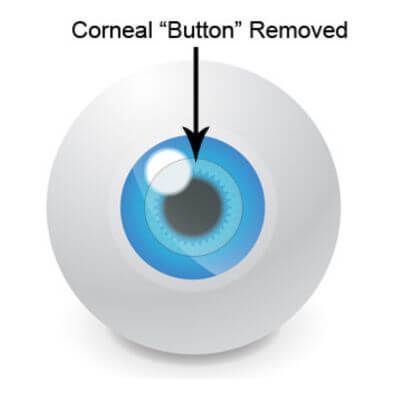3 Types of Eye Surgery That Will Help You See Better
Surgery is often the most practical solution when we diagnose a patient with an eye disorder. This is especially true when vision loss and significant pain are present. In this blog, we cover three of the most common types of eye surgery that our experienced ophthalmologists perform to help patients see better.
They are:
- Cataract surgery
- Refractive surgery
- Cornea transplant
Types of Eye Surgery That Will Help You See Better
1. Cataract Surgery
Cataracts form when normal proteins in the lens of the eye break down. They then form clumps which cause cloudy vision. Most cataracts are age-related. However, many other factors can put you at a greater risk of needing cataract surgery , such as smoking, drinking, and sun exposure.
During cataract surgery
, your surgeon will remove your clouded natural lens. They then replace it with a clear artificial lens called an
intraocular lens
(IOL). Your IOL will be unique in that it will be made using the same prescription as your glasses and/or contacts.
There are different types of IOLs , including:
- Standard lenses
- Toric lenses
- Multifocal lenses
- Light Adjustable lenses
Standard lenses help with close or distance vision, but not both. They also don’t help with astigmatism, but they’re usually covered by insurance. Toric lenses , on the other hand, do correct astigmatism. You can also choose toric lenses that fix up-close or distance vision, but not both.
Multifocal lenses fix everything from type of vision to astigmatism. The goal with them is to avoid glasses completely. Light Adjustable Lenses (LALs) are the newest form of IOL. Like multifocal lenses, they’re used to avoid glasses completely. LALs are unique because their prescription is adjusted after implantation using UV light. LALs are not available everywhere, but we offer them as an option for our patients at Baptist Eye Surgeons.
Cataract surgery is an outpatient procedure and the recovery time is fairly quick. It’s helpful to know what to expect before, during, and after cataract surgery . This is one of the best ways to ensure it goes smoothly. If you have any questions, please consult your doctor.
2. Refractive Surgery
Refractive surgery is most often used to correct distortions and improve your vision. You may be a candidate for treatment if you suffer from a refractive error such as:
- Nearsightedness (myopia)
- Farsightedness (hyperopia)
- Astigmatism
Refractive surgery procedures use various techniques and implements. The most common type is laser-assisted in situ keratomileusis , or LASIK for short.
During LASIK surgery, your surgeon adjusts the shape of the cornea to reverse how it refracts light. For example, someone who is nearsighted has a steeper-than-normal cornea. In this case, the surgeon would use the laser to flatten it out. LASIK eye surgeries are all outpatient and use only topical anesthetic eye drops. No bandages, stitches, or “going under” are required.
Be wary when window shopping for LASIK eye surgeons offering incredibly discounted prices. They’re not always what they’re cracked up to be. What’s more, patients usually pay higher than the originally advertised discounted price.
3. Cornea Transplant
The cornea is the clear front part of your eye. It allows you to see by focusing the light rays that pass through into your pupil. For the cornea to do its job correctly, it must remain clear and smooth.
Painful swelling with or without vision problems may occur if your cornea is:
- Misshapen
- Scarred
- Diseased
Your surgeon might suggest a cornea transplant if your cornea cannot be repaired. During a cornea transplant, your damaged cornea is replaced by a healthy one supplied by a donor.
There are several different cornea transplant options and your surgeon will recommend what is best for you. The procedure is typically done on an outpatient basis. However, recovery is a longer process than with most eye surgeries. Good postoperative care is important for preventing the rejection of your new cornea.
Do you need eye surgery in Knoxville, TN? Contact us today to schedule your appointment!
Cataract surgery involves replacing your clouded lens with a custom-made artificial one called an intraocular lens (IOL). LASIK surgery reshapes the cornea to correct refractive errors. It is outpatient, quick, and painless. When the cornea is damaged beyond repair, a healthy one from a donor replaces it. Postoperative care is crucial to prevent rejection during a cornea transplant.
Baptist Eye Surgeons is an ophthalmological practice in Knoxville, TN, Morristown, TN, and Sevierville, TN. Call us at 865-579-3920 for more information or to schedule an appointment .
*This post has been updated since it was first published in March 2017 for clarity and comprehensiveness.


MORRISTOWN
SEVIERVILLE
TENNESSEE VALLEY - LASER CENTER
TENNESSEE VALLEY - EYE CENTER




